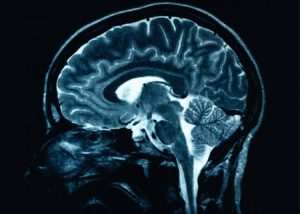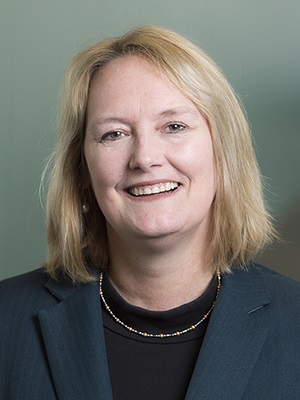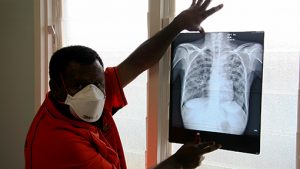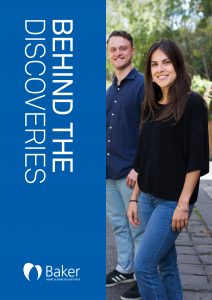ALFRED HEALTH
COVID Attacks the Brain
 Alfred Health Neurologist, Robb Wesselingh, has warned that the headaches, psychosis, fatigue and memory loss some COVID-19 patients develop could be the start of major life-long neurological complications due to the virus triggering their immune system to attack the brain. Read more…
Alfred Health Neurologist, Robb Wesselingh, has warned that the headaches, psychosis, fatigue and memory loss some COVID-19 patients develop could be the start of major life-long neurological complications due to the virus triggering their immune system to attack the brain. Read more…Potent Glioma Tumour Inhibitor Discovery
 Gliomas account for 80% of all brain tumours, with the most agressive form, glioblastoma, killing some 225,000 people globally each year. A new technique developed by Ms Liyen Katrina Kan (pictured), a PhD student in Dr Mastura Monif’s research group, has led to renewed hope for patients. Read more…
Gliomas account for 80% of all brain tumours, with the most agressive form, glioblastoma, killing some 225,000 people globally each year. A new technique developed by Ms Liyen Katrina Kan (pictured), a PhD student in Dr Mastura Monif’s research group, has led to renewed hope for patients. Read more…Genetic Predisposition to MS Mapped Throughout Immune System
Clinical Trial for Progressive Supranuclear Palsy (PSP)
How Multiple Sclerosis Changes the Brain’s Venous Rhythms
Monash researchers have discovered both a unique signal within the brain’s veins and how Multiple Sclerosis (MS) changes that venous rhythm. The research opens a new window into a part of the brain researchers didn’t know existed, and could shine a light on the importance of veins in MS symptoms and treatment. Read more…
Microbiome Key to Skin’s Immunological Landscape
MONASH PUBLIC HEALTH & PREVENTIVE MEDICINE

$2.55 Million MRFF Grant for Women’s Health Project
Rapid Point-of-Care Test for COVID-19 Under Development
Community Rules on World Hepatitis Day
A/Prof Joshua Vogel Nominated for Prestigious Award
 Burnet Institute Principal Research Fellow, Associate Professor Joshua Vogel (pictured) has been shortlisted for a prestigious Nature Research Award for Driving Global Impact. A/Prof Vogel is a nominee in the Healthcare Interventions category for his scientific achievements and current research program, focused on helping low- and middle-income countries in the Asia Pacific region to meet the UN Sustainable Development Goals. Read more here…
Burnet Institute Principal Research Fellow, Associate Professor Joshua Vogel (pictured) has been shortlisted for a prestigious Nature Research Award for Driving Global Impact. A/Prof Vogel is a nominee in the Healthcare Interventions category for his scientific achievements and current research program, focused on helping low- and middle-income countries in the Asia Pacific region to meet the UN Sustainable Development Goals. Read more here…
Wider repercussions for COVID focus
 Burnet Institute Director and CEO Professor Brendan Crabb AC has warned that the broader health impacts of the fight against COVID-19, particularly among developing countries in the Asia-Pacific region, could be as serious as the virus itself. “In developing countries, in circumstances of crisis, the indirect effects are far worse than the direct effects. There’s no doubt that will be the case with COVID-19,” Professor Crabb told The Guardian. Read more…
Burnet Institute Director and CEO Professor Brendan Crabb AC has warned that the broader health impacts of the fight against COVID-19, particularly among developing countries in the Asia-Pacific region, could be as serious as the virus itself. “In developing countries, in circumstances of crisis, the indirect effects are far worse than the direct effects. There’s no doubt that will be the case with COVID-19,” Professor Crabb told The Guardian. Read more…

2019 Impact Report Released
Women Left Behind by Treatment to Correct Heart Rhythm
Gene Variations at Birth Reveal Origins of Inflammation & Immune Disease
